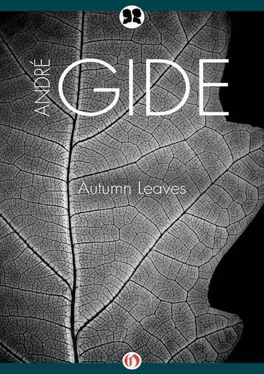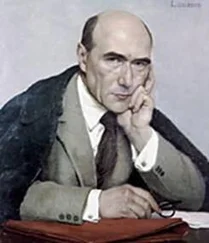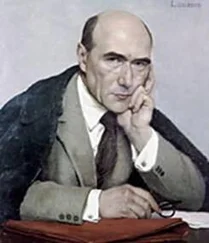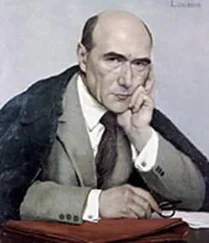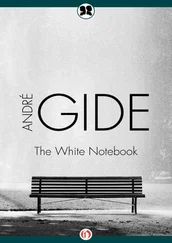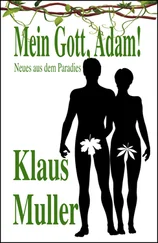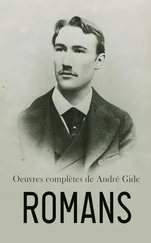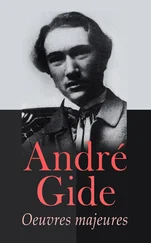Work and struggle and never accept an evil that you can change.
The greatest intelligence is precisely the one that suffers most from its own limitations.
Only fools don’t contradict themselves.
Do not do what someone else could do as well as you. Do not say, do not write what someone else could say, could write as well as you.
Please do not understand me too quickly.
Know that joy is rarer, more difficult, and more beautiful than sadness. Once you make this all-important discovery, you must embrace joy as a moral obligation.
Believe those who seek the truth, doubt those who find it; doubt all, but do not doubt yourself.
To read a writer is for me not merely to get an idea of what he says, but to go off with him and travel in his company.
He who makes great demands upon himself is naturally inclined to make great demands upon others.
It is better to be hated for what you are than to be loved for what you are not.
Then you think that one can keep a hopeless love in one’s heart for so long as that?…And that life can breathe upon it every day, without extinguishing it?
Whoever starts out toward the unknown must consent to venture alone.
Fish die belly upward, and rise to the surface. It’s their way of falling.
The most decisive actions of our life — I mean those that are most likely to decide the whole course of our future — are, more often than not, unconsidered.
My soul was born covered with wrinkles — wrinkles that my ancestors and parents most assiduously put there and that I had the greatest trouble removing.
Seize from every moment its unique novelty and do not prepare your joys.
Understanding is the beginning of approving.
Man is more interesting than men. God made him and not them in his image. Each one is more precious than all.
Through loyalty to the past, our mind refuses to realize that tomorrow’s joy is possible only if today’s makes way for it; that each wave owes the beauty of its line only to the withdrawal of the preceding one.

André Gide
Print Collection, Miriam and Ira D. Wallach Division of Art, Prints and Photographs, The New York Public Library, Astor, Lenox and Tilden Foundations

Joseph Conrad
Print Collection, Miriam and Ira D. Wallach Division of Art, Prints and Photographs, The New York Public Library, Astor, Lenox and Tilden Foundations

Arthur Rimbaud
Print Collection, Miriam and Ira D. Wallach Division of Art, Prints and Photographs, The New York Public Library, Astor, Lenox and Tilden Foundations

Thomas Mann
Print Collection, Miriam and Ira D. Wallach Division of Art, Prints and Photographs, The New York Public Library, Astor, Lenox and Tilden Foundations
MAJOR WORKS OF ANDRÉ GIDE
Les Cahiers d’André Walter, 1891 ( The Notebooks of André Walter )
Les Nourritures terrestres, 1897 ( Fruits of the Earth )
L’immoraliste, 1902 ( The Immoralist )
Saul, 1903
Le Retour de l’enfant prodigue, 1907 ( The Return of the Prodigal )
La Porte étroite, 1909 ( Strait is the Gate )
Les Caves du Vatican, 1914 ( Lafcadio’s Adventures )
La Symphonie pastorale, 1919 ( The Pastoral Symphony )
Corydon, 1924
Si le grain ne meurt, 1924 ( If It Die… )
Les Faux Monnayeurs, 1926 ( The Counterfeiters )
Le Retour de L’U.R.S.S., 1936 ( Return from the U.S.S.R. )
Journal 1889 à 1939 (1939)
Journal 1939 à 1942 (1948)
Journal 1942 à 1949 (1950)
IN my time (I mean at the time of my youth), it did not happen this way.
We would not have put up with these false exits, these re-entrances, these unexpected returns of winter after the stage was already set for the new fantasy. In my time, they knew how to abide by the rules. Rimbaud could write: “Eucharis tells me it is spring”; and after that you didn’t have to light the stoves any more. And it is not so much that the actors don’t know their roles to-day, but that they play them unseasonably. For ten or fifteen years springtime’s entrance has been a wash-out. You would like to go to the opening performance; nothing is ready. A glacial wind whistles through the delicate frondescence; the fruit-trees have budded too soon; they wait in vain for heaven’s answer and warm breezes; the bees are numb and fertilization jeopardized; you say: it is postponed until later, and you bury yourself again in meditation and reading; but no: the play has begun just the same; and when, on raising your eyes from the book, you look out, you are distressed to see that the impatient vegetation is going right along without worrying too much because the rest of the orchestra is lagging behind or is not following.
In my time, winter tiptoed away; step by step, it gave up its place; it had finally pronounced its last word, and you counted on the sun; the sap could mount without fear and the swollen buds open. Even then we would have been willing for spring to be late; but not for it to beat about the bush and to lose its ease and grace in those altercations with the bad season, up to the point of becoming unrecognizable; with the result that (I know exactly what’s going to happen), again this year, summer is going to arrive suddenly as though it came immediately after winter.
At least, this year, before meeting up again with the north wind and the gloom of the sky in Paris, I had left behind, half hidden under the flowers, the beautiful ruins of Olympus. Leaving Greece regretfully, I had passed through Yugoslavia fallen a prey to a frenzy of pink and white, admired the groves of wild lilac, fruit-trees, cherry or pear, quivering with whiteness, and here and there the slender, rosy sprays of peach-trees, all more beautiful than I remembered they could be; then, at the edge of the water, a great yellow flower, with the bearing of the asphodel, that I was not yet acquainted with, and whose name I should have liked to know.
The image of spring is formed by the super-impression of many memories. To those of former days are now added for me that of the marvelous public gardens of Athens; an avenue of Judas-trees forming an arch, a vast space completely covered by fragrant bunches of wistaria, where, on numerous benches, an entire nation, idle, came to listen to the singing of the birds, and to forget, for an hour, the occupation of Albania.
I don’t remember being very sensitive to spring in my early youth. I think the small child for whom everything is new, is not very surprised at miracles. The springtime of life begins with adolescence. When the heart swells with a vague love and virtuous resolutions at the same time, and the flesh with restless desires, then only one understands, by feeling it in the same way within oneself, the miraculous springtide. Yes, to be sensitive to spring, collusion is necessary and one must take part in the game itself. Then the adolescent suddenly trembles on hearing, at dawn, the song of the blackbird (rue de Commaille, where I then lived with my mother; the window of my room opened on a deep garden); he blushes on hearing his throbbing secret divulged; then cheers up; the whole city is still sleeping; he is the only one to hear; it is a matter between the blackbird and himself; and when man in his turn awakes, the bird falls silent.
Читать дальше
